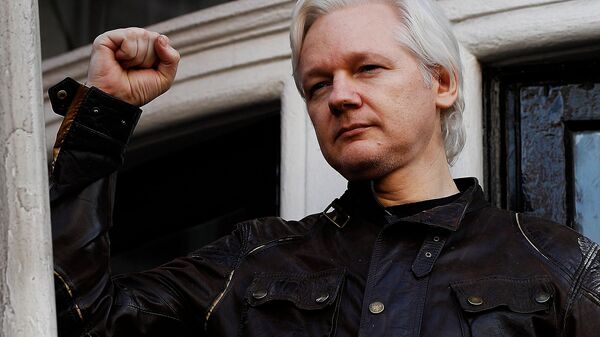Valencia said that Ecuador has no responsibility to Assange beyond his well-being, Sputnik News reported.
On Monday, Assange sued Ecuador over the conditions of his asylum, saying they violate "his fundamental rights and freedoms." Assange has been unable to leave the embassy since 2012 and was barred from the internet in March. His right to receive visitors and phone calls was also rescinded in May.
"They keep moving the goalposts here," activist and comedian Randy Credico, who is a friend of Assange, told Radio Sputnik's Loud & Clear. Credico testified in September before a US grand jury in connection to the special counsel investigation into whether there was collusion between the Trump campaign and the Russian Federation.
Assange stepped down as editor of WikiLeaks in September amid his months-long ban from the internet. Credico suggested that part of the reason that Assange has been able to keep his head high for so many years in confinement is because "he knows he's got his place in history."
When Credico saw Assange last, in 2017, "I knew that he was not in the best of health. No sunlight, no fresh air, none of that. And no visitors now," Credico said. "So they make the conditions so difficult. It's really an extraordinary rendition in a way, the way that the Ecuadorian government is doing this on behalf of the Brits and the US. They've got him in a torturous situation."
Assange was initially granted asylum under former Ecuadorian President Rafael Correa, who left office in May 2017. In July, the new government led by President Lenin Moreno put out an arrest warrant for Correa. On Wednesday, the former president told RT, "Assange has Ecuadorian citizenship, so it's not just asylum. Now he is protected by the Ecuadorian constitution."
If the leaders of Ecuador "were really a nation with a lot of integrity, at this point, the leadership the government, they would stand — the same way Correa did — stand for self-determination and autonomy. But they decided to roll," Credico said.


